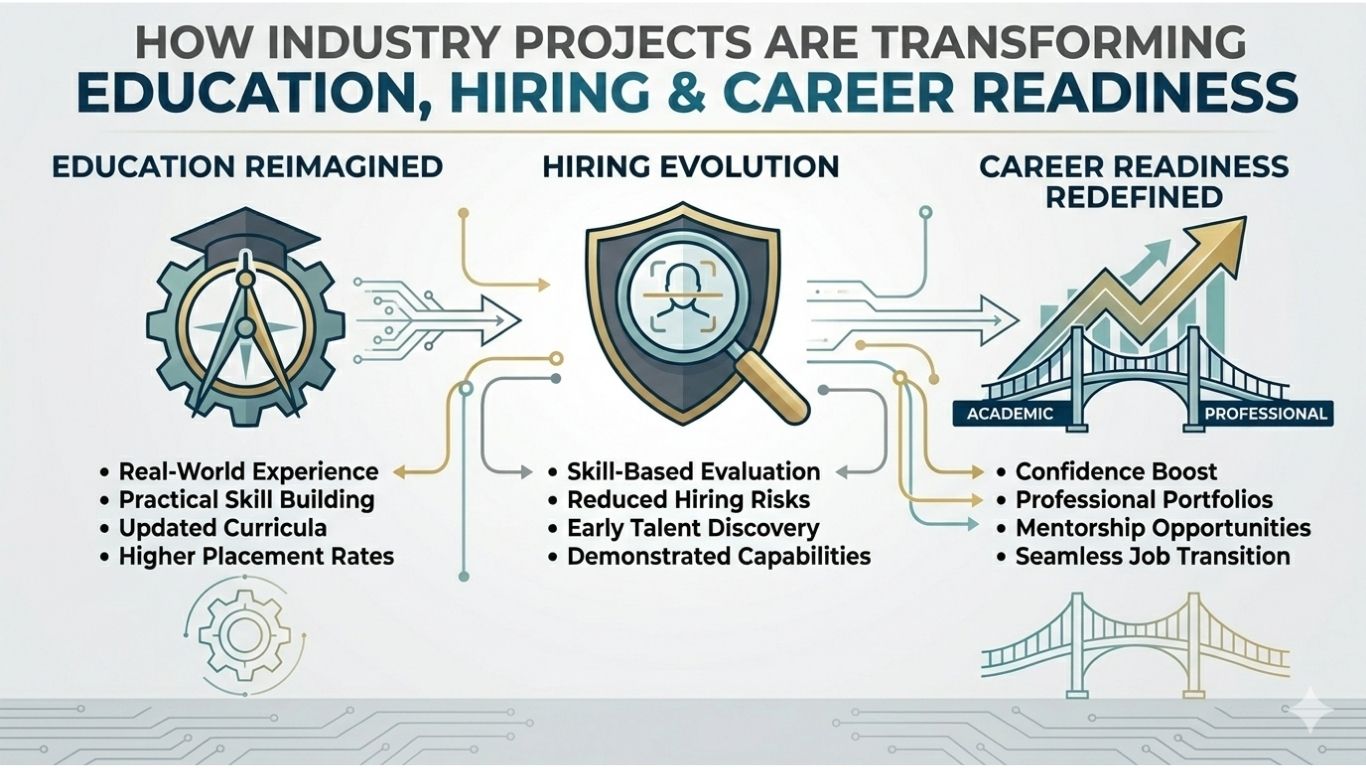Blockchain technology future is becoming the backbone of innovation in multiple industries. Initially known for supporting cryptocurrencies like Bitcoin, blockchain technology future now extends into healthcare, finance, logistics, and even entertainment. Its decentralized and secure framework addresses challenges like fraud, inefficiency, and data insecurity.
In this blog, we’ll explore the fundamentals of blockchain technology, its applications across industries, and the exciting career opportunities it offers in a rapidly changing global landscape.
What is Blockchain Technology?
At its core, blockchain technology is a digital ledger that stores data in a decentralized and tamper-proof manner. It uses cryptographic techniques to ensure security and transparency.
- Core Concept: A blockchain is made up of blocks, each containing a set of data. These blocks are linked together in chronological order.
- Decentralization: Unlike traditional systems, blockchain operates on a distributed network where no single entity has complete control.
- Immutability: Once data is recorded, it cannot be altered or deleted, ensuring trust and security.
For businesses and industries, blockchain’s ability to eliminate intermediaries while enhancing security makes it an invaluable tool for efficiency and transparency.
How Blockchain Technology Works
Blockchain’s functionality is rooted in a structured and secure process that ensures reliable data management:
- Transaction Initiation: A user starts a transaction, whether it’s transferring cryptocurrency, recording supply chain data, or verifying identities.
- Validation: Nodes, or participants in the network, validate the transaction using consensus mechanisms like Proof of Work (PoW) or Proof of Stake (PoS).
- Block Creation: The validated transaction is added to a block with others and prepared for addition to the chain.
- Integration into Blockchain: The block is linked to the chain, creating a secure, transparent, and immutable record.
This step-by-step process ensures that every transaction is trustworthy, transparent, and resistant to tampering.
Applications of Blockchain Technology
The blockchain technology future is unfolding across various sectors, demonstrating its versatility and transformative potential:
- Finance and Banking:
Blockchain powers faster and more secure transactions. Smart contracts automate processes like loan approvals and international payments, reducing fraud and inefficiencies. - Supply Chain Management:
Blockchain tracks products in real time, ensuring transparency from origin to destination. For instance, companies can verify the authenticity of luxury goods or the safety of food items. - Healthcare:
Blockchain secures sensitive patient data and enables healthcare providers to share information seamlessly. This ensures better diagnosis and treatment while maintaining privacy. - Real Estate:
Property transactions become faster and more transparent with blockchain. Digitized property records reduce paperwork and fraud. - Entertainment and Media:
Artists and creators can use blockchain to secure intellectual property rights and ensure fair distribution of royalties.
Blockchain’s use cases are expanding rapidly, making it a cornerstone of innovation.
Career Opportunities in Blockchain Technology
The blockchain technology future promises exponential growth in career opportunities, offering lucrative roles in various domains:
- Blockchain Developers:
- Role: Develop decentralized applications (dApps) and blockchain-based solutions.
- Skills Needed: Proficiency in programming languages like Solidity, Python, and Java.
- Smart Contract Developers:
- Role: Create self-executing contracts that automate processes.
- Skills Needed: Understanding of Ethereum and cryptography.
- Blockchain Architects:
- Role: Design the architecture of blockchain systems.
- Skills Needed: Expertise in distributed systems, network design, and scalability solutions.
- Blockchain Analysts and Consultants:
- Role: Help businesses identify how blockchain can optimize operations.
- Skills Needed: Analytical thinking, problem-solving, and industry-specific knowledge.
With blockchain-related roles in demand, professionals entering this field can expect growth, competitive salaries, and exciting opportunities.
Benefits, Challenges, and Future Opportunities
- Benefits of Blockchain Technology:
- Transparency: Blockchain ensures all network participants have access to the same data, promoting accountability.
- Security: Its cryptographic design prevents tampering and fraud, safeguarding sensitive information.
- Efficiency: By removing intermediaries, blockchain reduces delays and costs in transactions.
- Challenges in Adoption:
- Scalability: Many blockchain networks struggle to handle high transaction volumes, affecting efficiency.
- Energy Consumption: Consensus mechanisms like Proof of Work are energy-intensive.
- Regulatory Hurdles: Varying regulations worldwide can create barriers to adoption.
- Future Opportunities:
- Blockchain combined with AI and IoT will create smarter, interconnected systems.
- Innovations in energy-efficient blockchains will make adoption more sustainable.
- Expanding into untapped sectors like education, retail, and public governance will drive growth.
The blockchain technology future is bright, with significant room for innovation and growth in both technology and adoption.
Conclusion
Blockchain technology future is reshaping industries and creating a new era of innovation. Its ability to enhance transparency, security, and efficiency makes it a powerful tool for businesses and professionals.
As adoption expands, so do the career opportunities. From developers and architects to consultants, blockchain offers pathways for professionals to thrive in a rapidly evolving tech landscape.
Ready to step into the blockchain revolution? Start building your skills and exploring career opportunities today to stay ahead in this transformative field!





